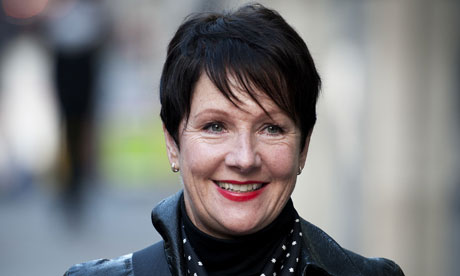By: Paola Totaro, Claire Connelly. From: News
Limited Network, November 12, 2012
AN unfettered internet, free of political control and available to
everyone could be relegated to cyber-history under a contentious proposal by a
little known United Nations body.
Experts claim that Australians could see political and religious
websites disappear if the Federal Government backs a plan to hand control
over the internet to the UN's International Telecommunications Union (ITU). A
draft of the proposal, formulated in secret and only recently posted on the ITU
website for public perusal, reveal that if accepted, the changes would allow
government restriction or blocking of information disseminated via the internet
and create a global regime of monitoring internet communications - including
the demand that those who send and receive information identify themselves. It
would also allow governments to shut down the internet if there is the belief
that it may interfere in the internal affairs of other states or that information
of a sensitive nature might be shared.
Telecommunications ministers from 193 countries will meet behind closed doors
in Dubai next month to discuss the proposal, with Australia's Senator Stephen
Conroy among them. The move has sparked a ferocious, under-the-radar diplomatic
war between a powerful bloc of nations, led by China and Russia, who want to
exert greater controls on the net and western democracies determined to
preserve the free-wheeling, open architecture of the World Wide Web. The battle
for control has also seen a cartel of telco corporations join forces to support
amended pricing regulations changes which critics warn will pave the way
for significant increases in the cost of day-to-day internet use, including email
and social media. While Senator Conroy said this morning he would not be
supporting any changes to the current arrangements, the decisions made by other
powers could also have a huge impact on Australian web users.
Simon Breheny, Director of independent think-tank, The Legal Rights
Project, told News Ltd that Australia would end up with a
"lowest-common-denominator situation" whereby what Australians could
view on the internet could be controlled by dominant member countries. "If
we sign it, it will mean we won't have the freedoms we have no regarding
commerce and sharing of ideas," he said. "That's the greatest concern
- rather than going beyond commerce, it comes into the field of sharing
political and religious ideas."
In a show of unity, civil rights groups, big communications corporations including Google and international labour unions are to meet in London today to launch a global campaign and petition titled Stop the Net Grab. Led by the International Trade Union Confederation, it will appeal to the UN and ITU itself to immediately open the plan for global debate and demanding a delay of any decision until all stakeholders - not just governments are given a voice.
Two influential Australians are at the centre of the move - Dr Paul Twomey and Sharran Burrow. They will be joined to launch the campaign by Vinton Cerf, one of the fathers of the internet and now chief Google evangelist. Ms Burrow, the General Secretary of the International Trade Union Confederation, warned urgent global action is now needed as the "internet as we know it" comes under very real threat. "Unless we act now, our right to freely communicate and share information could change forever. A group of big telecommunications corporations have joined with countries including China, Egypt and Saudi Arabia that already impose heavy restriction on internet freedoms," she said. "So far, the proposal has flown under the radar but its implications are extremely serious. Governments and big companies the world over may end up with the right not only to restrict the internet and monitor everything you do online but to charge users for services such as email and Skype."
Dr Twomey is former CEO of the International Corporation for Assigned Names and Numbers, the US body that governs domain names and addresses, and the Australian Government's National Office for the Information Economy. He warned that as the internet enters its third decade in mass use, the need to defend its founding open model is more urgent than ever. "The ongoing disputes about control have also been compounded by concern in national security and political elites in the wake of recent events such as the Arab Spring and London Riots where social media were key tools," he said. "And there is the accelerating pace of cyber espionage, targeting North American and other developed countries intellectual property as well as the global rise of hacktivism.”The danger is that there is now a growing likelihood of the interests of more traditional forces for Internet control overlapping with, and even seeking further to align with, national security and law enforcement agenda."
Read more: http://www.news.com.au/technology/united-nations-wants-control-of-web-kill-switch/story-e6frfro0-1226515006898#ixzz2By1zScCg
http://www.abc.net.au/news/2012-11-12/internet-ownership/4366508
In a show of unity, civil rights groups, big communications corporations including Google and international labour unions are to meet in London today to launch a global campaign and petition titled Stop the Net Grab. Led by the International Trade Union Confederation, it will appeal to the UN and ITU itself to immediately open the plan for global debate and demanding a delay of any decision until all stakeholders - not just governments are given a voice.
Two influential Australians are at the centre of the move - Dr Paul Twomey and Sharran Burrow. They will be joined to launch the campaign by Vinton Cerf, one of the fathers of the internet and now chief Google evangelist. Ms Burrow, the General Secretary of the International Trade Union Confederation, warned urgent global action is now needed as the "internet as we know it" comes under very real threat. "Unless we act now, our right to freely communicate and share information could change forever. A group of big telecommunications corporations have joined with countries including China, Egypt and Saudi Arabia that already impose heavy restriction on internet freedoms," she said. "So far, the proposal has flown under the radar but its implications are extremely serious. Governments and big companies the world over may end up with the right not only to restrict the internet and monitor everything you do online but to charge users for services such as email and Skype."
Dr Twomey is former CEO of the International Corporation for Assigned Names and Numbers, the US body that governs domain names and addresses, and the Australian Government's National Office for the Information Economy. He warned that as the internet enters its third decade in mass use, the need to defend its founding open model is more urgent than ever. "The ongoing disputes about control have also been compounded by concern in national security and political elites in the wake of recent events such as the Arab Spring and London Riots where social media were key tools," he said. "And there is the accelerating pace of cyber espionage, targeting North American and other developed countries intellectual property as well as the global rise of hacktivism.”The danger is that there is now a growing likelihood of the interests of more traditional forces for Internet control overlapping with, and even seeking further to align with, national security and law enforcement agenda."
Read more: http://www.news.com.au/technology/united-nations-wants-control-of-web-kill-switch/story-e6frfro0-1226515006898#ixzz2By1zScCg
http://www.abc.net.au/news/2012-11-12/internet-ownership/4366508



